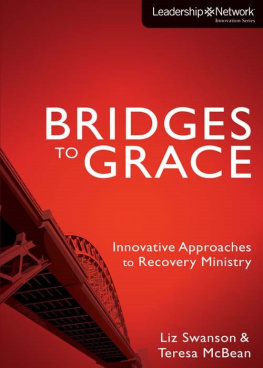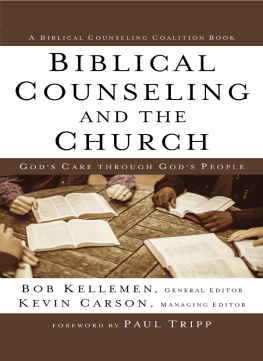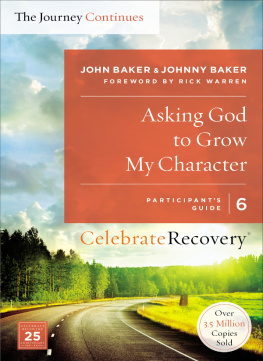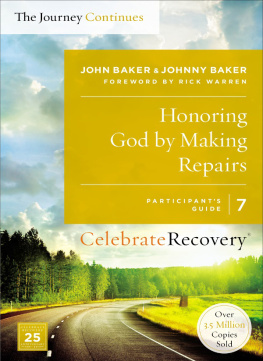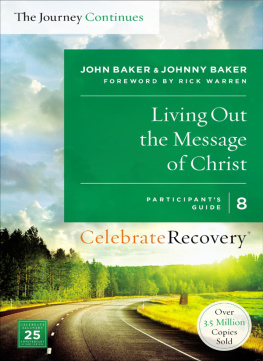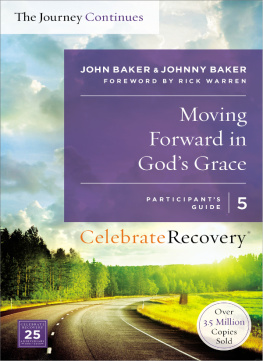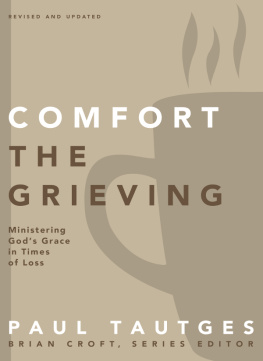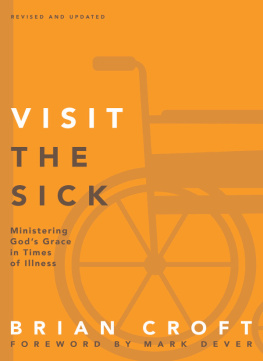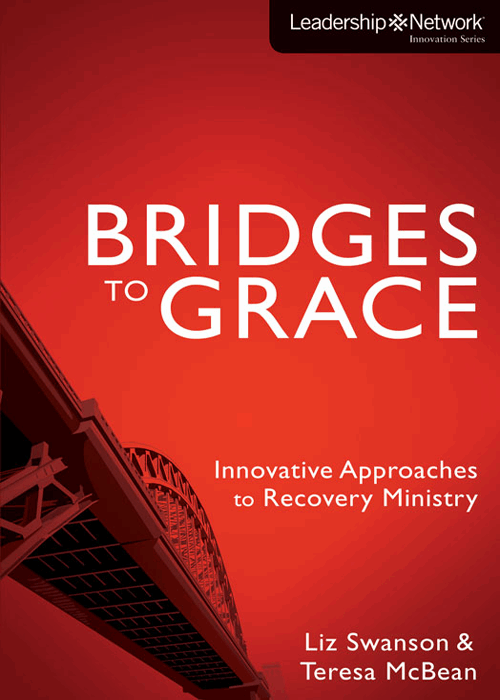ITS HARD TO WATCH THE NEWS TODAY without seeing the proliferation of politicians, athletes, and celebrities who are going through rehab. Many are recognizing and acknowledging the brokenness of their lives and seeking the help they are unable to provide for themselves or by themselves.
But where is the church in the world of recovery? How are Gods people and particularly those called to lead and shepherd responding to this addiction crisis?
When I (Liz) applied for the position of Leadership Community Director at Leadership Network, a job that would include a focus on church recovery ministries, I went through a pretty typical interview process with the team that did the hiring. Then, just before the interview ended, I was asked a question that caught me off guard.
Liz, have you ever dealt with an addiction yourself?
Truth be told, no one had ever asked me that question before! I panicked. Suddenly my years of working in ministry, the Bible studies Id led, the training Id given on how to share the gospel it all meant nothing. I hesitated to respond. There was a secret I had never shared with anyone.
Yes, I have.
Though I had never told anyone, in my twenties I had struggled for several years with bulimia, an eating disorder. Over the years, I had kept it buried inside. It was too shameful to admit. After all, how could a Christian who was trying to trust God act out in this inappropriate way? I had accepted the idea that the church is no place for such a person. I was certain that if my secret was known, I would no longer fit in.
But Ive learned that Im not alone in feeling this way. Many Christians have issues, hurts, wounds, hidden sins, and addictions that they believe have no place in the church, and so they hide. They hide because theyre convinced that they are the only ones struggling. They hide because they are ashamed and afraid to admit they need help.
According to research done by George Barnas organization, the number of Christians who struggle with addiction and brokenness is higher than wed like to think. In every study, which includes thousands of interviews with born-again Christians, no clear evidence was shown that Christians are living transformed lives. In a study released in 2007, many of the lifestyle activities of born-again Christians were revealed to be statistically no different from others in the study. When asked to identify their activities over the last thirty days, born-again believers were just as likely to indicate that they had bet or gambled, visited a pornographic website, stolen something, consulted a medium or psychic, fought or abused someone, consumed enough alcohol to be considered legally drunk, used an illegal drug, lied, sought revenge, or said mean things about another person.
Ive found that recovery isnt just for those few people who really need help. Its something we all need at one point or another in our lives. Recovery is nothing more, but certainly nothing less, than the process of redeeming lives, learning to live in light of what Jesus has done for us. The reality of sin means that all of us are broken. All of us are flawed. All of us sin and are sinned against. All of us have been hurt and disappointed by others. Grief, wounds, death, and broken relationships tear at the fabric of our souls. We manage to survive, but we dont thrive. Our pain-management methods alcohol, recreational drugs, pornography, sex, food, and, yes, even work are temporary, fleeting, repetitive, and destructive. The unbroken pattern is the same in so many of our lives: pain, relief, shame, pain, relief, shame spiraling ever downward. The velocity of the descent varies, but the direction is constant. We need a realistic understanding of how to work through our issues, our struggles with sinful behavior, so we can experience more than just relief from our struggles. We want to grow, but to really grow in faith, we need support and we need a safe place to find answers to our questions. We all need recovery in different ways, for different reasons, but we all want to see lives restored and healed by the grace of God.
In the meantime, with our untreated wounds and addictions, we fill the seats during weekend worship, sit on elders boards, serve as prayer warriors, and even stand in pulpits. We want to recover. We want to be restored. But sometimes it feels as if our desperate and sincere prayers go unanswered, and we are left wondering, Why do the promises of peace, healing, and transformation seem to elude me and my family?
When I began this journey of gathering churches to focus on the lack of effective solutions to this problem, I began a quest to learn what recovery is, what it looks like in the church, and whether its a viable ministry. Are there churches where God is at work healing lives and restoring people to wholeness? I conducted thirty- to sixty-minute interviews with more than 260 churches around the United States and Canada, most of them large churches with a weekend worship-service attendance of more than fifteen hundred. I spoke with many lead pastors, but most often I talked with recovery pastors, recovery directors, care pastors, and church counselors the people who have their fingers on the pulse of the emotional health of the church. I also interviewed some individuals who didnt work directly with the church but were Christian leaders in this field of recovery. I read scores of books on various recovery-related topics and attended numerous conferences over a period of several years.
In the midst of my research, I met Teresa McBean, the coauthor of this book. I knew from the beginning that we shared a similar passion for the church and the ministry of recovery. Teresa and her team have successfully planted three recovery communities churches where people are experiencing the freedom that is found only in Christ. She possesses a depth of understanding about the day in and day out workings of recovery ministry in the church. Her practical working knowledge of the field along with my research and extensive exposure to recovery ministries across the nation have made collaborating on this project a natural fit.
There are many different approaches to recovery ministry in the church today. There is no one size fits all pattern for effective and transformative ministry. And the good news is that across the nation, hopeless and helpless people are finding their way back to God, both within the four walls of the church and outside our traditional structures, through the door of recovery. They are experiencing Transformation. Their prayers for changed lives are being answered. They are finding church to be a place where they can tell the truth about their lives without fear, where they can experience the grace theyve longed for but felt they didnt deserve. Some with addictions that have been labeled untreatable, who have been considered unredeemable, are now experiencing soul restoration.

